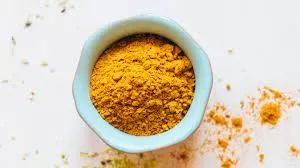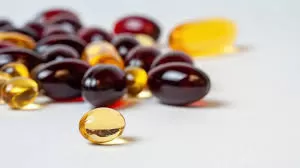- 0086-571-85302990
- sales@greenskybio.com
Inositol: A Nutrient with Diverse Health Benefits
2025-05-01
Inositol is a naturally produced nutrient with a chemical makeup similar to glucose. Available as a supplement and found in various foods, inositol supports insulin function and may aid in managing polycystic ovary syndrome (PCOS), mental health conditions, diabetes, and metabolic disorders.
Health Benefits
1. Reduces Symptoms of PCOS: Characterized by hormonal imbalances and ovarian cysts, PCOS can often result from insulin resistance. Studies demonstrate that daily inositol supplements are as effective as metformin in treating symptoms like irregular periods, acne, and excess hair growth.
2. Helps Manage Metabolic Syndrome: This syndrome encompasses conditions increasing heart disease, stroke, and diabetes risks. Inositol's role in enhancing insulin sensitivity may help lower triglycerides and LDL cholesterol in people with metabolic syndrome.
3. Controls Blood Sugar in Type 2 Diabetes: Inositol supplementation has been shown to lower fasting glucose and hemoglobin A1c levels, aiding in blood sugar management in type 2 diabetes. Continued research is necessary to corroborate these findings.
4. Prevents Gestational Diabetes and Preterm Birth: Inositol supplementation can enhance insulin function, reducing gestational diabetes risks by up to 40% for those with a family history. Further research is needed to confirm these effects.
5. Promotes Fertility in Women and Men: Inositol has been linked to improved ovulation and pregnancy rates, as well as enhanced sperm motility and production, thanks to its impact on reproductive hormones.
6. Helps With Mental Health Conditions: Limited studies suggest potential benefits in managing depression, bipolar disorder, eating disorders, and panic disorder when supplemented with inositol.
Ways to Consume Inositol
Supplements: Available as myo-inositol (MI) and D-chiro-inositol (DCI), these supplements may vary in efficacy based on their formulation ratios.
Dietary Sources: Inositol occurs naturally in nuts, beans, citrus fruits, leafy greens, organ meats, seeds, and whole grains.
Safety and Side Effects
Inositol is generally safe, though high doses exceeding 12 grams daily might lead to side effects such as nausea, diarrhea, fatigue, and headaches. Consultation with healthcare professionals is advised before starting supplements.
Supplement Regulation and Dosage
Dietary supplements aren't regulated by the FDA as medications are, meaning they don't undergo comprehensive safety and efficacy evaluations. Effective doses of inositol vary widely depending on specific conditions, from fertility and diabetes to mental health and metabolic syndrome management. In general, supplements for different purposes range from several hundred milligrams to several grams daily.
In summary, while inositol offers promising health benefits across various conditions, further research is warranted to establish definitive guidelines and therapeutic ratios. Always consult with a healthcare provider to ensure safety and effectiveness for individual health needs.
-
Goldenseal: A Historic Herbal Remedy at Risk
2025-05-01















